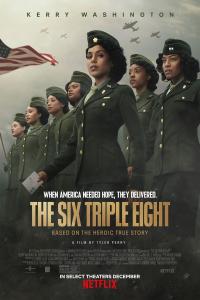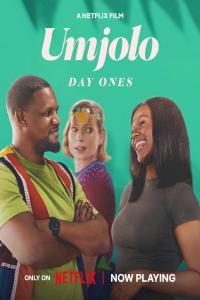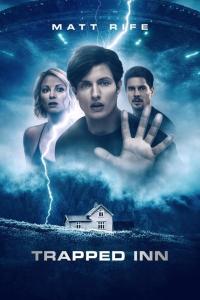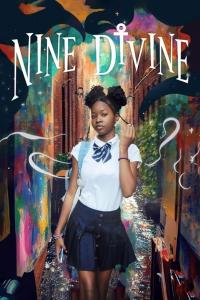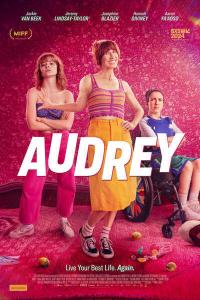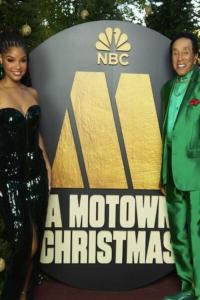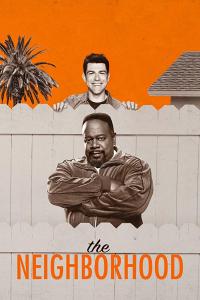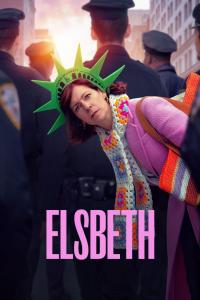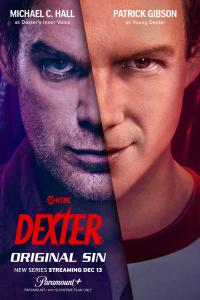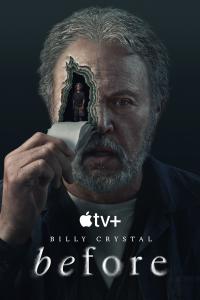Torrent details for "Black History Month Inside Cinema S01 complete (1280x720p HD, 50fps, soft Eng subs) " Log in to bookmark
Controls:
Language:
 English
EnglishTotal Size:
1.86 GB
Info Hash:
de83acdfa22c4baf81acf6b9ffbffb0c29cc01d7
Added By:
Added:
15-10-2020 14:25
Views:
742
Health:

Seeds:
0
Leechers:
0
Completed:
41
Black History Month Inside Cinema S01 complete (1280x720p HD, 50fps, soft Eng subs)
E01 Jordan Peele
Documentary that explores the work of Jordan Peele, an era-defining horror auteur, incisive social critic and influential media mogul. Peele, who started out as a comedian with sketch show Key & Peele, captured the zeitgeist with his Oscar-winning horror Get Out, a film that showcased his deft balance of horror, comedy and social commentary. Peele is also an executive producer on TV shows ranging from a revamped Twilight Zone to Lovecraft Country. / / In this profile documentary, Inside Cinema traces Peele's career as a comedian, film-maker and producer, in both film and television, and explores how a lifelong love for the horror genre has informed his inimitable style. / / 2017's Get Out may have been Peele's directorial debut, but it showcased perfectly his expert combination of classic genre thrills and smart political satire, tackling post-racial liberalism head-on, while finding the space where comedy becomes scary and horror becomes funny. His 2019 follow-up, the doppelganger horror Us, mined one of horror fiction's most fertile conventions, the deep-rooted Freudian fear of a figure that looks just like you but isn't, and centred on an elastic, elusive metaphor that struck right at the heart of American society. / / Written and narrated by Ellen E Jones, film, TV writer and columnist for The Guardian, the documentary argues that while Peele is a modern master of horror, comedy and social commentary, the true power of his films rises from an awareness of genre and audience expectations.

E02 Ava DuVernay
Documentary that explores the work of a film director of groundbreaking firsts. Ava DuVernay is the first black woman to win Best Director at Sundance, for her romantic drama Middle of Nowhere, the first black woman to direct a $100-million budget film, the youth fantasy drama A Wrinkle in Time, and the first black woman to direct a film Oscar-nominated for Best Picture - Selma, the first major feature film about Martin Luther King Jr. / / In this short documentary profile, Inside Cinema takes a look at the career of an extraordinary woman who, from picking up her first camera at the age of 32 and directing her first feature, hip-hop documentary This Is the Life, has consistently laid the groundwork for what would become her brand of putting black women first. / / The programme is written and narrated by Corrina Antrobus, a film writer, podcaster and founder of The Bechdel Test Fest, a celebration of films that present women in a positive and dynamic light. She explores DuVernay's journey to becoming the most powerful black woman in the film industry. / / Middle of Nowhere marked the first time DuVernay worked with David Oyelowo, a professional relationship that saw the director-actor pairing progress to Selma, DuVernay's historical drama charting the 1960s right-to-vote marches to Selma, Alabama, led by Dr Martin Luther King Jr. / / Released just as Eric Garner and Michael Brown's deaths galvanised the Black Lives Matter movement, DuVernay titled the film Selma as a dedication to those who joined Dr King on the marches. / / After Selma came DuVernay's feature-length documentary, 13th, which showed how prison works as a modern-day labour industry and aimed to dismantle the racist foundations in film culture laid down by so-called godfather of film DW Griffith. / / DuVernay was given a budget of $100 million for the Disney fantasy adventure A Wrinkle in Time, the most she, or any black woman, had enjoyed at the time the film was made. The film helped create balance for young black girls who rarely get to be the hero in children's adventures, strategically centring on a young black girl throughout. / / DuVernay's next project, a four-part drama series, When They See Us, tackled the case of the Central Park Five, using an infamous miscarriage of justice as an extreme example to expose all the wider facets of a biased criminal justice system. / / The film also argues that the very fact that Ava DuVernay is the first black woman to break so many glass ceilings is both an indictment of an industry that has kept artists like her at a distance and a cause for celebration as we look to the future for the next DuVernay.
E03 Barry Jenkins
An exploration of the work of Barry Jenkins, a trailblazing film director whose Best Picture winner Moonlight made Oscar night history in 2017, beating La La Land to Best Picture following a dramatic and unprecedented envelope mix-up.
Grace Barber-Plentie, a writer and programmer specialising in depictions of people of colour, particularly black women, in pop culture. explores Jenkins’s body of work, from his charming low-fi breakout, romantic drama Medicine for Melancholy, to his current status as only the second black director to make a film which has won the Oscar for Best Picture.
His first film, Medicine for Melancholy, marked the first time Jenkins worked with cinematographer James Laxton, a professional relationship that would see the director and his favourite director of photograph work together on every subsequent project. Medicine for Melancholy was influenced by the work of French director Claire Denis, in particular her film Vendredi soir, with Jenkins positioning his work as part of an outward-looking, cosmopolitan cinematic tradition with its roots in European cinema.
His next film, Moonlight, was a higher profile project, with a cast of stars including Mahershala Ali, Naomie Harris and popstar Janelle Monae. Moonlight also wears its cinematic influences on its sleeve, including the work of director Wong Kar-wai, again showing that his work is culturally open, speaking a global language of references. Jenkins was also influenced by directors such as Kahlil Joseph and his heightened, hyper-real depiction of black lives in music videos like Until the Quiet Comes.
Moonlight manages to be two things - specific and universal. Jenkins, a black film-maker, makes a film for and about black people, but like any good coming-of-age story, Moonlight captured its audience's hearts because it was universal, with people from all walks of life able to relate to it.
Jenkins’s return to cinema after Moonlight’s dramatic Oscar win was 2018’s If Beale Street Could Talk, looking at the prison industrial complex through the words of pioneering African-American author James Baldwin, the first film adaptation of Baldwin’s fiction. The film follows star-crossed young lovers Tish and Fonny in 1960s New York, who are separated after Fonny is imprisoned for a crime he didn’t commit.
Inside Cinema: Barry Jenkins shows how this director takes heavy, thought-provoking subject matter and weaves it into stories all about love, drawing together a plethora of international influences to tell uniquely black American stories.
E04 Ryan Coogler
An exploration of the work of Ryan Coogler, a record-breaking film director, whose Oscar-winning and box office-conquering superhero adventure Black Panther scaled new heights for big-budget black cinema in Hollywood. Written and voiced Kambole Campbell, a writer and film critic for Empire Magazine, Little White Lies and Sight & Sound, this short profile documentary follows Coogler’s career from independent drama Fruitvale Station through Rocky franchise spin-off Creed to comic-book epic Black Panther.
Campbell argues that while Coogler’s films have grown exponentially in size, ambition and budget, they are united by common themes and personal touches. Each is an examination of contemporary black masculinity, from the family legacy that rests on Adonis Creed’s shoulders to the central conflict of Black Panther, between the brute strength of the insurgent villain, Killmonger, and the grace and vulnerability of Black Panther himself, King T’Challa.
While his career to date has marked him out as a distinctive film-maker, Coogler favours sharing the limelight with his returning collaborators, to award-winning effect. Rachel Morrison’s cinematography on Fruitvale Station made a low-key drama more intimate and compelling, while Maryse Alberti’s work on Creed hinged around a showcase sequence: Adonis’s first bout, shot in long, elaborate takes, revealing the tactical battle of boxing as the combatants’ fatigue grows. Then, Black Panther broke the Marvel movie mould, crafting an Oscar-winning Afrofuturist aesthetic, from Hannah Bleachler’s sets to Ruth Carter’s costumes and Ludwig Goransson’s score, all mixing sci-fi superhero style with traditional African accents, imagining a high-tech African utopia, untouched by European colonial influence.
What ties all of Coogler’s films together is his rewriting of the way black stories are told. Fruitvale Station flipped the script on portrayals of black victims in mainstream media. Creed re-centred a traditionally white-led sports franchise on a young black boxer, viewing the sports genre through the prism of black culture. And, finally, Black Panther was Coogler’s grand rewrite of colonialism itself, presenting an Afrofuturist fantasy of Africa untouched by colonialism and imperial greed, as well as a spectacular reinvention of the white-dominated superhero genre.
Throughout his films, no matter how large the budget or creative canvas, Ryan Coogler’s work is unified by an interest in black lives: their shared history, their identities and their representation on the big screen.
First broadcast: October 2020
Duration: 13-15 minutes per episode
Torrent dead? Request reseed at torrentgalaxy.org - or ask at elsonroa at tutanota.com
E01 Jordan Peele
Documentary that explores the work of Jordan Peele, an era-defining horror auteur, incisive social critic and influential media mogul. Peele, who started out as a comedian with sketch show Key & Peele, captured the zeitgeist with his Oscar-winning horror Get Out, a film that showcased his deft balance of horror, comedy and social commentary. Peele is also an executive producer on TV shows ranging from a revamped Twilight Zone to Lovecraft Country. / / In this profile documentary, Inside Cinema traces Peele's career as a comedian, film-maker and producer, in both film and television, and explores how a lifelong love for the horror genre has informed his inimitable style. / / 2017's Get Out may have been Peele's directorial debut, but it showcased perfectly his expert combination of classic genre thrills and smart political satire, tackling post-racial liberalism head-on, while finding the space where comedy becomes scary and horror becomes funny. His 2019 follow-up, the doppelganger horror Us, mined one of horror fiction's most fertile conventions, the deep-rooted Freudian fear of a figure that looks just like you but isn't, and centred on an elastic, elusive metaphor that struck right at the heart of American society. / / Written and narrated by Ellen E Jones, film, TV writer and columnist for The Guardian, the documentary argues that while Peele is a modern master of horror, comedy and social commentary, the true power of his films rises from an awareness of genre and audience expectations.

E02 Ava DuVernay
Documentary that explores the work of a film director of groundbreaking firsts. Ava DuVernay is the first black woman to win Best Director at Sundance, for her romantic drama Middle of Nowhere, the first black woman to direct a $100-million budget film, the youth fantasy drama A Wrinkle in Time, and the first black woman to direct a film Oscar-nominated for Best Picture - Selma, the first major feature film about Martin Luther King Jr. / / In this short documentary profile, Inside Cinema takes a look at the career of an extraordinary woman who, from picking up her first camera at the age of 32 and directing her first feature, hip-hop documentary This Is the Life, has consistently laid the groundwork for what would become her brand of putting black women first. / / The programme is written and narrated by Corrina Antrobus, a film writer, podcaster and founder of The Bechdel Test Fest, a celebration of films that present women in a positive and dynamic light. She explores DuVernay's journey to becoming the most powerful black woman in the film industry. / / Middle of Nowhere marked the first time DuVernay worked with David Oyelowo, a professional relationship that saw the director-actor pairing progress to Selma, DuVernay's historical drama charting the 1960s right-to-vote marches to Selma, Alabama, led by Dr Martin Luther King Jr. / / Released just as Eric Garner and Michael Brown's deaths galvanised the Black Lives Matter movement, DuVernay titled the film Selma as a dedication to those who joined Dr King on the marches. / / After Selma came DuVernay's feature-length documentary, 13th, which showed how prison works as a modern-day labour industry and aimed to dismantle the racist foundations in film culture laid down by so-called godfather of film DW Griffith. / / DuVernay was given a budget of $100 million for the Disney fantasy adventure A Wrinkle in Time, the most she, or any black woman, had enjoyed at the time the film was made. The film helped create balance for young black girls who rarely get to be the hero in children's adventures, strategically centring on a young black girl throughout. / / DuVernay's next project, a four-part drama series, When They See Us, tackled the case of the Central Park Five, using an infamous miscarriage of justice as an extreme example to expose all the wider facets of a biased criminal justice system. / / The film also argues that the very fact that Ava DuVernay is the first black woman to break so many glass ceilings is both an indictment of an industry that has kept artists like her at a distance and a cause for celebration as we look to the future for the next DuVernay.
E03 Barry Jenkins
An exploration of the work of Barry Jenkins, a trailblazing film director whose Best Picture winner Moonlight made Oscar night history in 2017, beating La La Land to Best Picture following a dramatic and unprecedented envelope mix-up.
Grace Barber-Plentie, a writer and programmer specialising in depictions of people of colour, particularly black women, in pop culture. explores Jenkins’s body of work, from his charming low-fi breakout, romantic drama Medicine for Melancholy, to his current status as only the second black director to make a film which has won the Oscar for Best Picture.
His first film, Medicine for Melancholy, marked the first time Jenkins worked with cinematographer James Laxton, a professional relationship that would see the director and his favourite director of photograph work together on every subsequent project. Medicine for Melancholy was influenced by the work of French director Claire Denis, in particular her film Vendredi soir, with Jenkins positioning his work as part of an outward-looking, cosmopolitan cinematic tradition with its roots in European cinema.
His next film, Moonlight, was a higher profile project, with a cast of stars including Mahershala Ali, Naomie Harris and popstar Janelle Monae. Moonlight also wears its cinematic influences on its sleeve, including the work of director Wong Kar-wai, again showing that his work is culturally open, speaking a global language of references. Jenkins was also influenced by directors such as Kahlil Joseph and his heightened, hyper-real depiction of black lives in music videos like Until the Quiet Comes.
Moonlight manages to be two things - specific and universal. Jenkins, a black film-maker, makes a film for and about black people, but like any good coming-of-age story, Moonlight captured its audience's hearts because it was universal, with people from all walks of life able to relate to it.
Jenkins’s return to cinema after Moonlight’s dramatic Oscar win was 2018’s If Beale Street Could Talk, looking at the prison industrial complex through the words of pioneering African-American author James Baldwin, the first film adaptation of Baldwin’s fiction. The film follows star-crossed young lovers Tish and Fonny in 1960s New York, who are separated after Fonny is imprisoned for a crime he didn’t commit.
Inside Cinema: Barry Jenkins shows how this director takes heavy, thought-provoking subject matter and weaves it into stories all about love, drawing together a plethora of international influences to tell uniquely black American stories.
E04 Ryan Coogler
An exploration of the work of Ryan Coogler, a record-breaking film director, whose Oscar-winning and box office-conquering superhero adventure Black Panther scaled new heights for big-budget black cinema in Hollywood. Written and voiced Kambole Campbell, a writer and film critic for Empire Magazine, Little White Lies and Sight & Sound, this short profile documentary follows Coogler’s career from independent drama Fruitvale Station through Rocky franchise spin-off Creed to comic-book epic Black Panther.
Campbell argues that while Coogler’s films have grown exponentially in size, ambition and budget, they are united by common themes and personal touches. Each is an examination of contemporary black masculinity, from the family legacy that rests on Adonis Creed’s shoulders to the central conflict of Black Panther, between the brute strength of the insurgent villain, Killmonger, and the grace and vulnerability of Black Panther himself, King T’Challa.
While his career to date has marked him out as a distinctive film-maker, Coogler favours sharing the limelight with his returning collaborators, to award-winning effect. Rachel Morrison’s cinematography on Fruitvale Station made a low-key drama more intimate and compelling, while Maryse Alberti’s work on Creed hinged around a showcase sequence: Adonis’s first bout, shot in long, elaborate takes, revealing the tactical battle of boxing as the combatants’ fatigue grows. Then, Black Panther broke the Marvel movie mould, crafting an Oscar-winning Afrofuturist aesthetic, from Hannah Bleachler’s sets to Ruth Carter’s costumes and Ludwig Goransson’s score, all mixing sci-fi superhero style with traditional African accents, imagining a high-tech African utopia, untouched by European colonial influence.
What ties all of Coogler’s films together is his rewriting of the way black stories are told. Fruitvale Station flipped the script on portrayals of black victims in mainstream media. Creed re-centred a traditionally white-led sports franchise on a young black boxer, viewing the sports genre through the prism of black culture. And, finally, Black Panther was Coogler’s grand rewrite of colonialism itself, presenting an Afrofuturist fantasy of Africa untouched by colonialism and imperial greed, as well as a spectacular reinvention of the white-dominated superhero genre.
Throughout his films, no matter how large the budget or creative canvas, Ryan Coogler’s work is unified by an interest in black lives: their shared history, their identities and their representation on the big screen.
First broadcast: October 2020
Duration: 13-15 minutes per episode
Torrent dead? Request reseed at torrentgalaxy.org - or ask at elsonroa at tutanota.com




